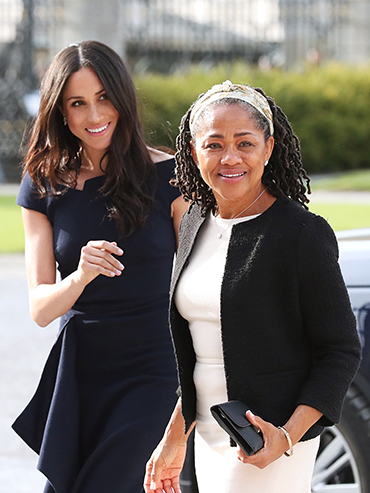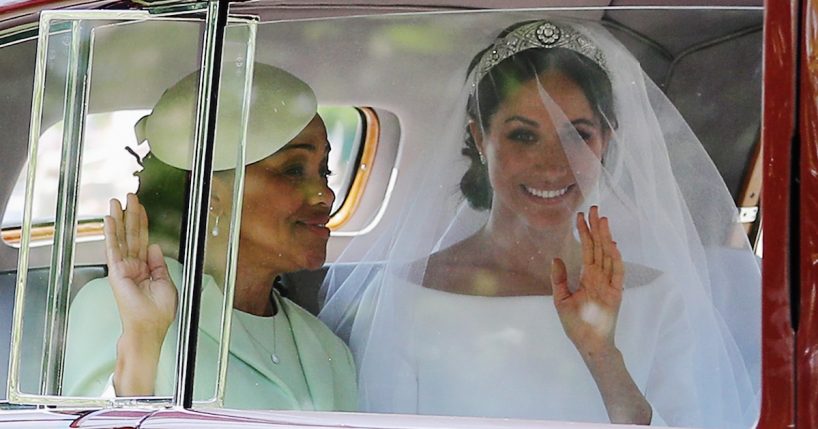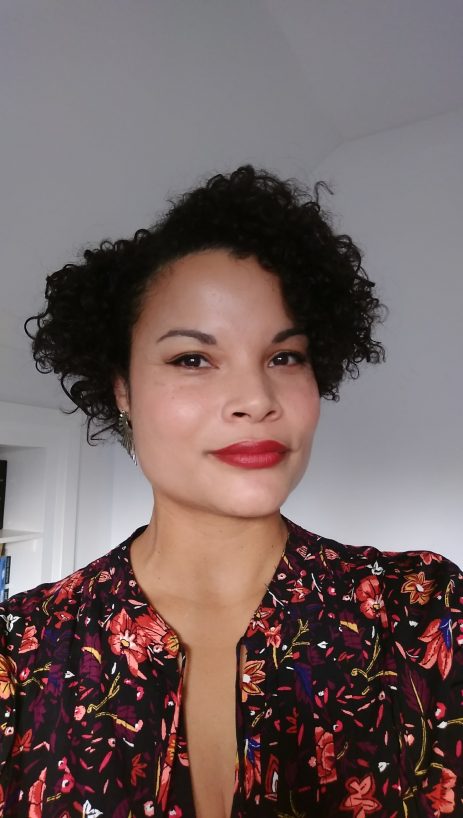What It Was Like to Watch the Royal Wedding as a Woman of Colour
Meghan and Harry's wedding was the Blackest moment in British royal history, and I'm so here for it


My first thought after watching the royal wedding? All the Black praise hand emojis for Meghan. It’s been said that the newly-crowned Her Royal Highness, the Duchess of Sussex, and her husband the Duke—a.k.a. Prince Harry—were heavily involved in every stage of their wedding planning. And to my immense delight, it showed. From her solo entrance to the chapel to the rousing sermon by The Most Reverend Bishop Michael Curry, head of the U.S. Episcopalian Church, to the soulful rendition of “Stand by Me” by Karen Gibson and The Kingdom Choir, to exiting the chapel to civil rights anthem “This Little Light of Mine,” Meghan and Harry’s desire to represent her tastes and culture was apparent. It was the Blackest and most modern moment in British royal history, and I’m so here for it.
This may be an unpopular opinion among people of colour, but I’m an Anglophile. I blame my lovely Polish-Canadian mother, who watched Masterpiece Theatre and BBC mysteries while drinking tea throughout my childhood. Maybe that’s unfair—this fondness for England is all on me and I can’t explain why. It’s especially unsettling because my dad was born and raised in Barbados, which was a British colony for 300 years until it gained independence in 1966. (Prince Harry and Rihanna celebrated the 50th anniversary together in Bridgetown and yes, I shipped them.)
As a teen, I devoured Jane Austen and all things Tudor. In university, I was an English major with a history minor, and the bulk of the latter was British history. I cried watching Princess Diana’s funeral alone in my basement apartment, and I covered Prince William and Kate Middleton’s wedding for my media job at the time. I say all this as—what, an apology? a slightly defensive explanation?—for my softness regarding the royal family.

Watching Meghan and her gorgeous mother, Doria Ragland, ride together to Windsor Castle made me feel a way. I assumed Ms. Ragland would maintain her grey-flecked dreadlocks. It was a given, unlike my dream of seeing Meghan’s natural curls, which, in childhood photos, looked a lot like mine. But I didn’t expect the strength of my reaction. The confluence of mixed woman + Black mom + natural hair + happy cheering British crowds was emotional.
I’m not ignorant. I know the British introduced the slave trade to Barbados; I am the descendant of those slaves. Incidentally, the new Duchess is also the descendant of slaves, which she wrote about for Elle in an essay called “I’m More Than an ‘Other.’” (One of the most poignant details surrounding the royal wedding is the fact that the last Duke of Sussex was anti-slavery and campaigned for its abolition.) So yes, I yelped out loud when The Most Reverend Bishop Michael Curry referenced slavery (!!) and the power of love and faith in overcoming hardship during his sermon. And hey, if Bernice King, daughter of Martin Luther King, Jr.—whom Curry quoted in his sermon—tweets that it’s OK to be moved, then it is OK to be moved.
Dear Family: It’s okay to watch and be moved by the #RoyalWedding. It doesn’t make you insensitive or less caring about the inhumanity in the world. It doesn’t mean you’ve forgotten history. Find moments of joy. We need them to continue the work.
— Be A King (@BerniceKing) May 19, 2018
Last night, in anticipation of today, I watched the Harry and Meghan Lifetime movie. It was OTT, eye-rolling cheese, of course, but one scene stood out. In the movie, Meghan plans to continue her acting career after marrying Harry, which he supports and the palace questions. But one day on the set of Suits, Meghan meets a little Black girl who is in awe of her not because she’s on TV, but because she’s marrying a Prince (the shade thrown at Suits here is hilarious). Meghan realizes that she can make more of a global impact as Prince Harry’s partner than she ever could as an actress. It’s schmaltzy and almost certainly untrue, but it hammers home what is so emotional about a biracial woman entering the British Royal Family. Representation means something, it’s more than a mantra. It moves me deeply to see people of colour occupy spaces where they were previously unwelcome. So congratulations to the happy couple! Now I’m going to take a nap.
Related:
Selena, Oprah, Priyanka: All the Celebs at the Royal Wedding
All the Ways Jessica Mulroney Just Won the Royal Wedding
Who Is Jessica Mulroney?








